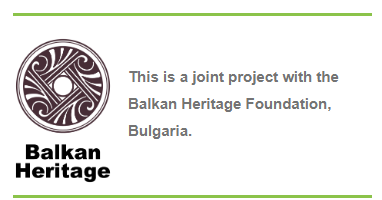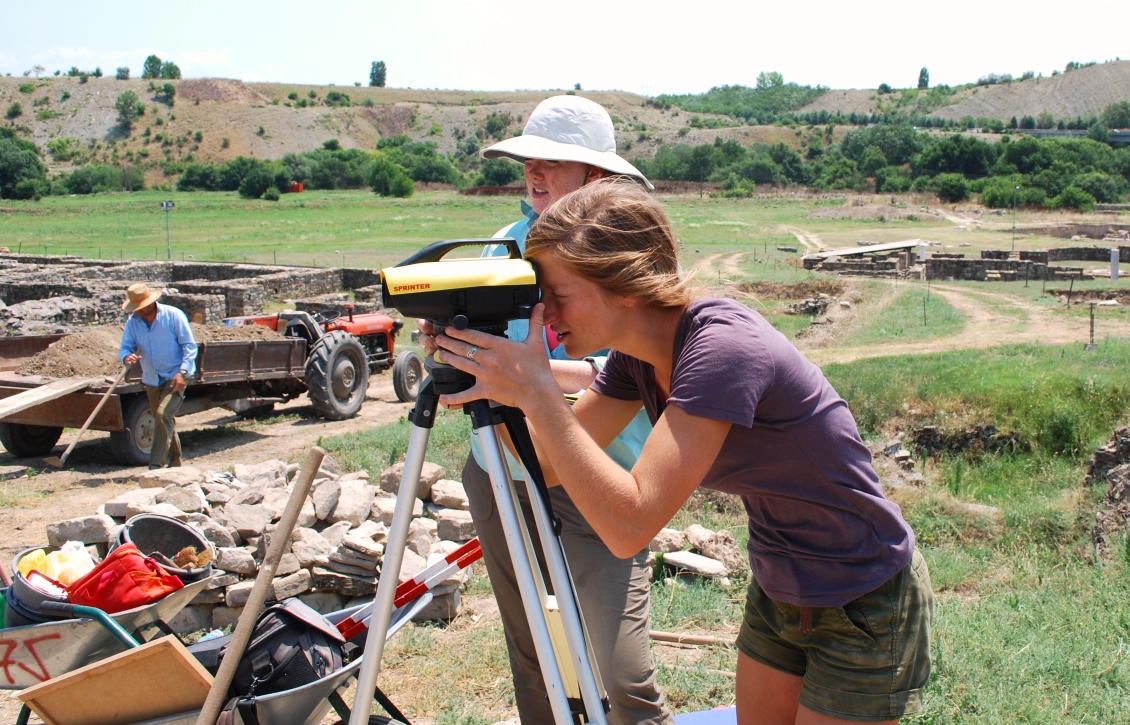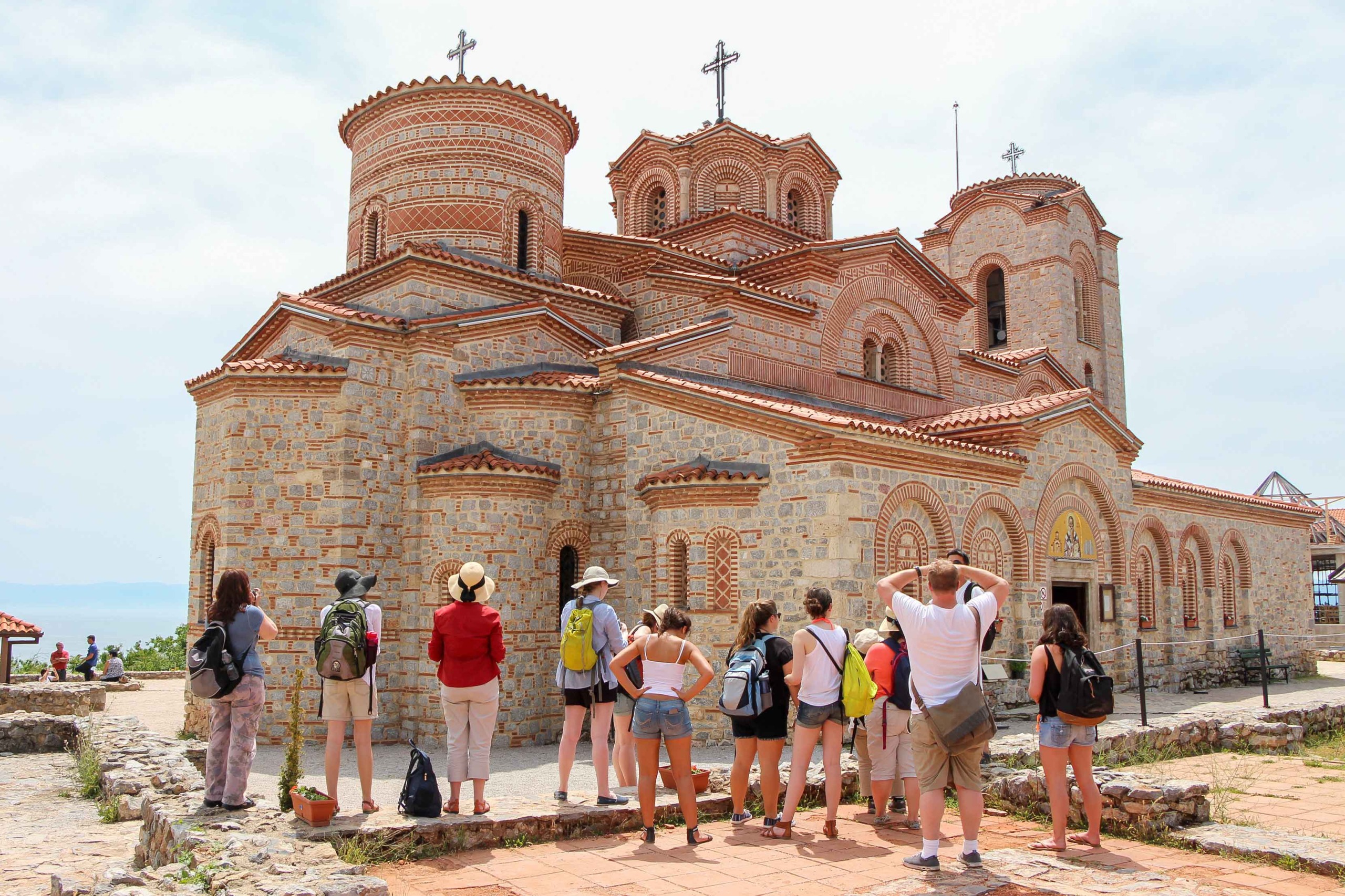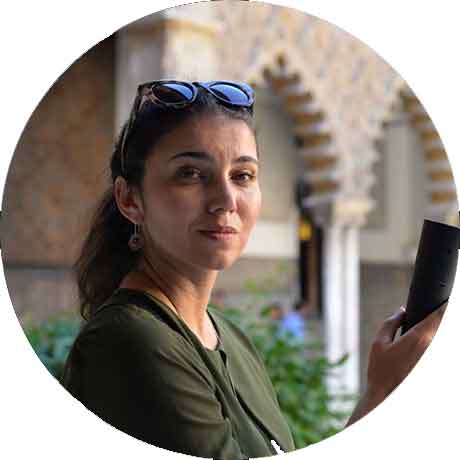
Overview
Transport yourself to the ancient city of Stobi and dig in to help unearth the lost buildings, roads, structures, and objects from the daily life of this once-thriving center from the Roman Empire. You’ll work alongside researchers and professors from around the world as you learn and apply skills in excavation, field documentation, recording techniques, surveying, and more. Join us to make your own meaningful contribution to a large-scale excavation and conservation project supported by the national Ministry of Culture, Balkan Heritage Foundation, and multiple global universities. Located about an hour’s drive from the modern-day capital of North Macedonia, you can hold history in your hands as you consider the contemporary efforts of this newly established country to build its sense of national past and identity after a turbulent 20th century.
Field school highlights:
- Gain hands-on experience that contributes to ongoing research and cultural conservation at a heritage site actively visited by the locals and tourists.
- Live a traditional fieldwork experience with an international group of students, researchers, and staff living on-site, often described as an adult summer-camp!
- Connect with history and your surroundings through excursions to UNESCO world heritage sites and other area spotlights.
| Course Details | |
|---|---|
| Course Dates | June 7 – July 5, 2025 |
| Course Type | Field Archaeology |
| Instructors | Dr. Silvana Blazhevska, Dr. George A. Bevan & Dr. Angela Pencheva |
| Credits* | 8 semester (12 quarter) |
| Apply By | February 1 |
| Fees Due By | April 15 |
| Program Fees | (2025) |
|---|---|
| Tuition | $3,870 |
| Transcript Fee* | $300 |
| Health & Evacuation Insurance | $130 |
| Room & Board | $1,750 |
| TOTAL: | $6,050 |
This program is full and is no longer accepting new applications.
Email admissions@ifrglobal.org to ask about joining the waitlist.
Instructors
The directors welcome emails and inquiries about the research elements of this project. More general information (tuition, health insurance, and payment schedule) can be found under the ‘Students’ tab above. Any further questions may be addressed to IFR staff. Additional details about research, course schedule, travel, accommodation, and safety can be found on the syllabus. Contacting the directors or the IFR office is encouraged and appreciated. It may help you determine if this field school is a good fit for you.
Testimonials
This is my first time in the Balkans, it is an amazing way to learn about ancient history, because here among the ruins in the Stobi Archaeological park you get to be in the history. It was a great experience to learn how to do Field Archaeology; the team is fantastic and welcoming and make it fun to learn and to dig. And the other students that you meet here it just makes a very international environment, it’s a great experience to learn in.
This was my first dig ever, but the field school program is just great, I’ve learned a great amount of things. The thing that I liked most about the course was that you learn each part of Archaeology -the digging, finding floor levels, technical drawings of pottery and walls, etc.. The supervisors were also extremely patient with us and very helpful. I definitely feel more qualified than when I started.
Payment & Student Fees
Application Fee: There is a $45 fee to submit an online application.
Deposit Payment: A nonrefundable $500 deposit is due within 3 weeks of program acceptance in order to secure your place. The remainder of your program fees are due by the deadline indicated under “Course Details”.
*Transcript Fee & Academic Credit Opt Out: If you wish to participate in an IFR field school without earning academic credits, you will not be charged a transcript fee.
For more information about payment, fees, and policies, please see details under our Payment & Finances and Withdrawal and Cancellation Policy pages.
Accommodations
Participants stay at the recently renovated, air-conditioned cabins at the archaeological base camp next to the ancient site of Stobi. Students will be housed in rooms with 2–3 beds each. Each cabin has 4 bedrooms, a living room, and 2 bathrooms with showers. A washing machine and Wi-Fi are available for free. The Stobi cleaning staff will clean and disinfect the rooms & bathrooms and common spaces every day. In the beginning of the field school students will be introduced to the safety protocol for the hotel, the shuttle and the site upon arrival.
The closest village to Stobi is Gradsko (5 km), where there are grocery stores, a pharmacy, an ATM, and medical facilities. The closest big supermarket, drug-stores, pharmacies, banks with ATM and hospitals are in the city of Negotino (13 km from Stobi).
Meals: Three meals (fresh, homemade food) are provided each day. Meals usually take place at the field house premises, except for lunch packages during excursions. This field school can accommodate vegetarians, vegans, and individuals with lactose-intolerance diets, however, vegetarian/vegan students should be prepared that meals may not be as varied as they are accustomed to. Students will have access to grocery stores if they need supplemental food. Kosher and gluten-free diets are impossible to accommodate at this location.


Travel Info
Natural disasters, political changes, weather conditions and various other factors may force the cancellation or alteration of a field school. IFR recommends students only purchase airline tickets that are fully refundable and consider travel insurance in case a program or travel plans must change for any reason.
General information for this program is below, but keep in mind we will discuss any updated travel information and regulations during the required program orientation, which could affect travel plans.
Shuttle or taxi service will be organized for all the students arriving at the two closest airports: Skopje airport (N. Macedonia) or Thessaloniki airport (Greece). Further travel information will be shared during orientation.
VISA REQUIREMENTS
Citizens of EU, EEA, USA, Canada, Japan, Republic of Korea, Australia and New Zealand do not need a visa to visit N. Macedonia for up to 90 days. Citizens of all other countries may need a visa. The Balkan Heritage Foundation can send an official invitation letter that should be used at the relevant embassy to secure a visa to the program.
Citizens of all other countries may need a visa. The Balkan Heritage Foundation can send an official invitation letter that should be used at the relevant embassy to secure a visa to the program.
For more information about border crossing visit the Balkan Heritage Field School web site at http://www.bhfieldschool.org/countries/macedonia and
http://www.bhfieldschool.org/countries/bulgaria and
http://www.bhfieldschool.org/information/visa-help and the links provided there.













